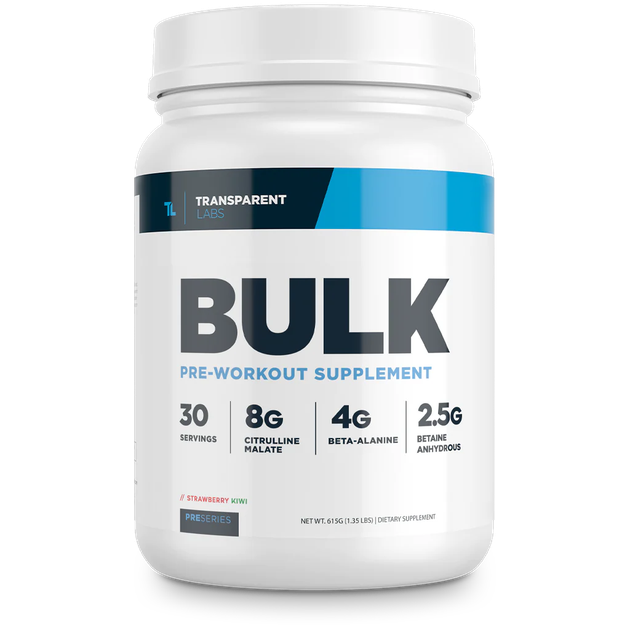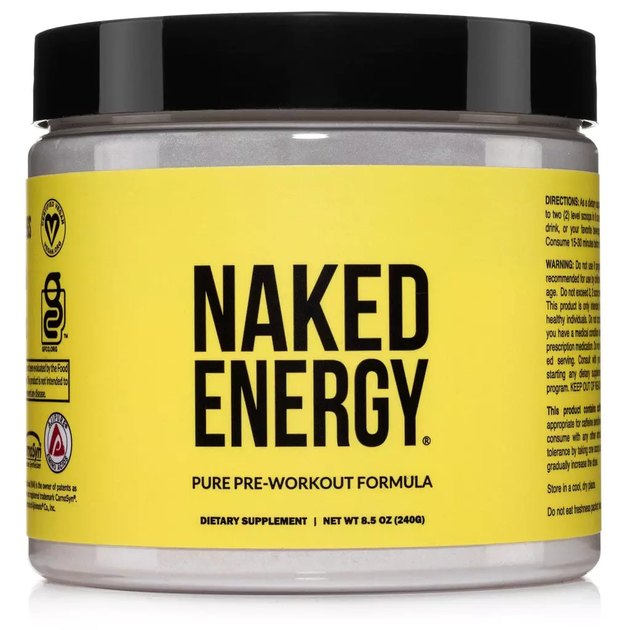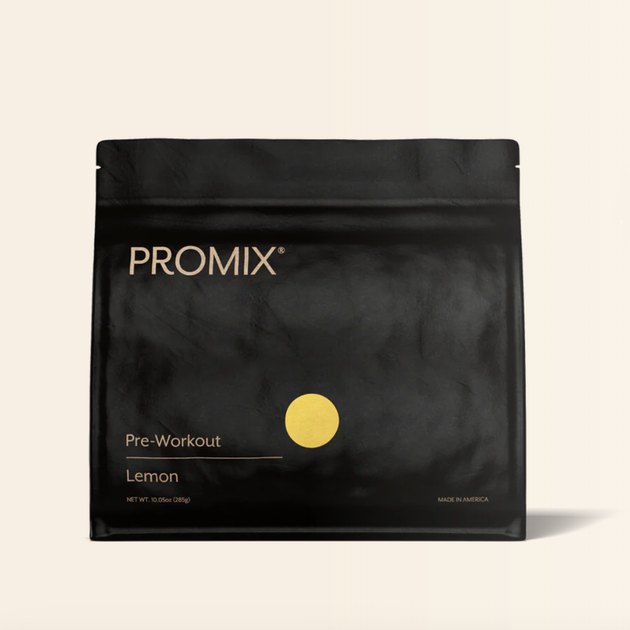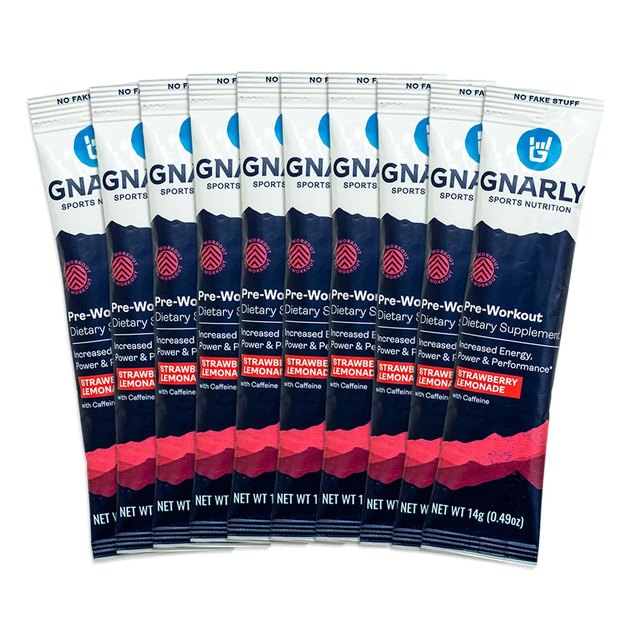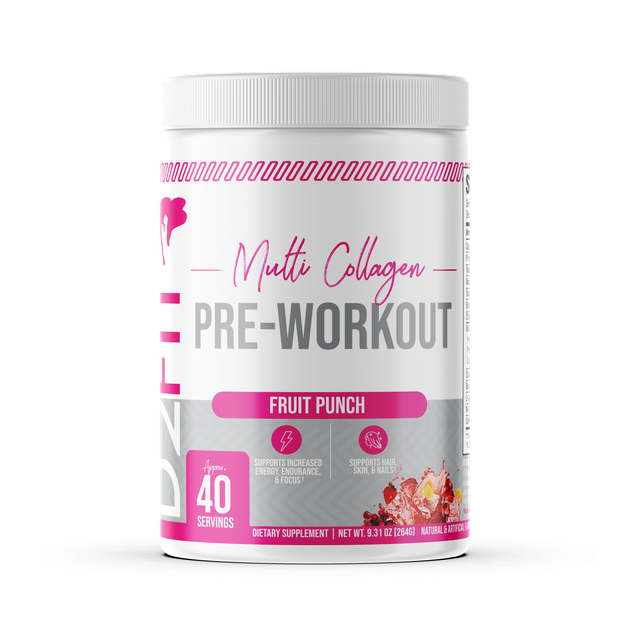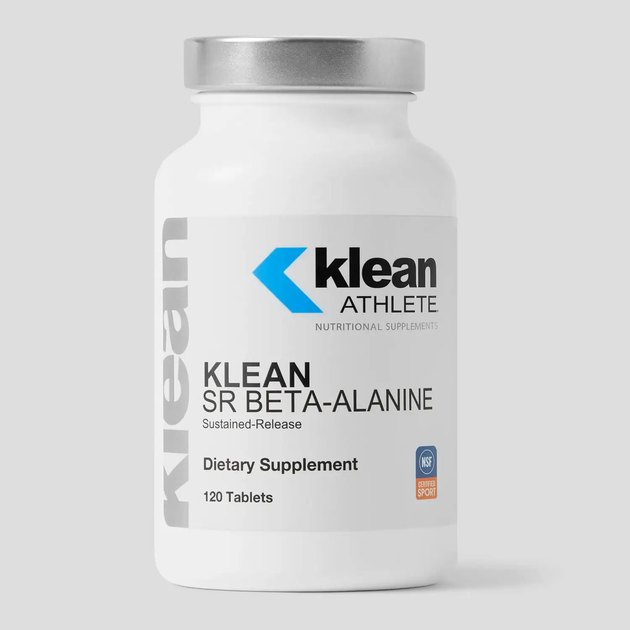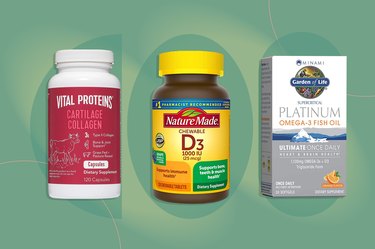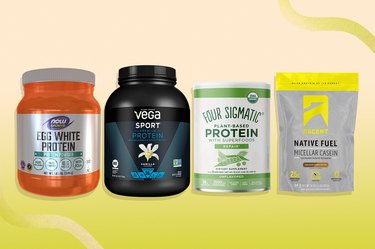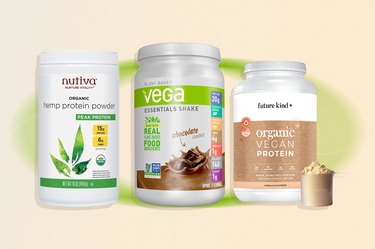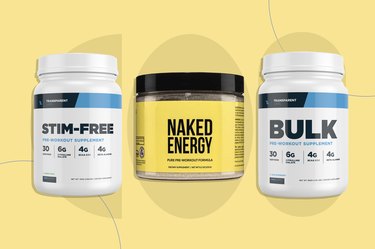
After a night of restless sleep or a long workday, sometimes a cup of coffee before the gym just doesn't cut it. That's when pre-workout becomes the energy source of choice. But with so many supplements, finding a safe and effective product can be challenging.
With the help of a sports dietitian and a doctor, we've separated the good from the bad. Here are the best pre-workout supplements and how to use them responsibly.
Video of the Day
Video of the Day
Pre-Workouts That Work
- Best for Strength Gains: Transparent Labs Bulk Pre-Workout ($49.99, Transparent Labs)
- Best Vegan: Naked Nutrition Naked Energy ($44.99, Naked Nutrition)
- Best for Minimal Ingredients: PROMIX Pre-Workout ($32, PROMIX)
- Best On-the-Go: Gnarly Pre-Workout ($20, Gnarly Sports Nutrition)
- Best With Collagen: D2Fit Multi Collagen Preworkout ($44.99 Amazon)
- Best Non-Stimulant: Klean Athlete Klean SR Beta-Alanine ($43.10, Klean Athlete)
How We Chose
To find the best pre-workout supplements, we chatted with Jim White, RDN, a registered dietitian and exercise physiologist as well as Fatima Cody Stanford, MD, MPH, an obesity medicine physician-scientist. They gave us the lowdown on the best and worst ingredients, red flags and the most trustworthy testing organizations.
We chose these products based on the following criteria:
- Ingredients
- Dosage
- Third-party testing
1. Best for Strength Gains: Transparent Labs Bulk Pre-Workout
The best thing about this pre-workout: As the company name indicates, it's transparent. Transparent Labs lists every single ingredient in its pre-workout, along with a description of what it is and research-backed evidence on why it's effective before training.
This formula is made with muscle-building in mind, with higher doses of specific ingredients that help promote hypertrophy (increased muscle strength and size).
Compared to the company's fat-burning-focused pre-workout (more on that below), this one is higher in BCAAs, which are amino acids that can stimulate the muscle-building process, according to a May 2018 study in Nutrition and Metabolism.
2. Best Vegan Option: Naked Nutrition Naked Energy
The biggest thing White recommends you look out for is high caffeine levels in a pre-workout supplement. Generally, you want to stay within about 400 milligrams of caffeine daily (that's roughly 4 to 5 cups of coffee), according to the U.S. Food and Drug Administration (FDA).
Many pre-workout powders get extremely close to or even exceed that value, but Naked Energy stays within half your daily limit, at 200 milligrams per serving. This vegan pre-workout powder gets its caffeine from unroasted coffee beans. (Naked Energy also offers a stim-free version if you'd rather your pre-workout have no caffeine.)
3. Best for Minimal Ingredients: PROMIX Pre-Workout
A minimal, simple ingredient list is another thing to look for when buying a pre-workout, White says. PROMIX's blend has only six ingredients with no unwanted additives or artificial preservatives. The packaging also explains the purpose of each ingredient to give you full transparency.
Another bonus: All the ingredients are tested by a third party for heavy metals. And you can even take a look at the testing results on the company's website.
4. Best for On-the-Go: Gnarly Pre-Workout
Keep an eye out for products approved by the National Science Foundation (NSF), White recommends. The NSF Certified for Sport seal indicates that the product is safe and actually contains the ingredients listed on the label.
Gnarly's pre-workout supplement is certified by the NSF, gluten-free and vegan-friendly. And you can even buy it in on-the-go packets, so you don't have to lug around a tub in your gym bag and can bring it with you while traveling.
5. Best With Collagen: D2Fit Multi Collagen Preworkout
This super popular pre-workout (more than 1,600 ratings on Amazon with 4.6 stars) contains biotin and collagen protein. Collagen can help support your bone strength, joints and even skin health.
Developed by Jessica Bass James, founder of Dance 2 Fit, you mix this pre-workout in water about 15 minutes before exercise. With 150mg of caffeine, this one is on the low end, and many users report that there's no jitters and they don't get "pre-workout tingle."
6. Best Non-Stimulant: Klean Athlete Klean SR Beta-Alanine
This is about as simple as pre-workout supplements get. Beta-alanine is a common ingredient in most pre-workout powders and can help boost performance, White says. Why drink a bunch of extra ingredients and stimulants (like caffeine) if just one will do?
Beta-alanine is an amino acid that helps your body produce carnosine, a molecule found in your muscles, White says. Carnosine can help reduce lactic acid from building up in your muscles, which helps improve your overall athletic performance.
3 Factors to Consider Before You Buy Pre-Workout
1. The Ingredient List
Most supplements generally use the same ingredients, but there are a few that are especially helpful in providing the energy you need before a workout:
- Branched-chain amino acids: Also known as BCAAs, amino acids are the building blocks of protein, White says. While your body can make some amino acids on its own, BCAAs are essential amino acids, which your body needs to get from food or supplements.
- Beta-alanine: Beta-alanine is an amino acid that helps your body produce carnosine, which can help reduce the amount of lactic acid that builds up in your muscles, minimizing soreness while you train, White says. Although there's no recommended daily amount of beta-alanine, most supplements have between 1 and 2 grams per serving, which is generally safe.
- Caffeine: Caffeine is a natural stimulant that helps you feel more alert and focused while you exercise, White says. Moderate doses (below 400 milligrams) of caffeine are generally safe for most people but exceeding this amount can cause issues like diarrhea, nausea and increased heart rate.
- Citrulline: This is another amino acid that can help increase blood flow in your body, White says. This can help work longer without fatiguing as quickly. Most supplements have about 3 grams per serving, which is a generally safe amount.
- Creatine: Creatine is a muscle-building supplement that's approved by the National Collegiate Athletic Association and is safe for most people to take, White says. Naturally found in meat (and naturally produced by your own body, too), creatine can increase your body's energy levels because it helps your body's muscles contract. For most people, up to 1.2 grams is best.
There are some ingredients that are best to avoid, too. For the most part, White suggests you watch out for products with sugar alcohols or artificial sweeteners. Although these aren't necessarily bad for your health or dangerous, they can cause gas, bloating or diarrhea — not what you want during a workout.
What About Dimethylamylamine (DMMA)?
DMMA used to be common in pre-workout powders in the past but has since been banned by the FDA due to safety issues. Although the supplements you buy on the shelf probably won't contain DMMA, the FDA doesn't strictly regulate pre-workout products, so it's always best to double-check.
2. Language on the Label
Some products may contain a "proprietary blend" of ingredients, which is a red flag, according to White. Although the label may list which ingredients are in the product, blends don't provide the exact dosing of each substance used.
For instance, even though caffeine is a generally safe ingredient, if it's in a blend, there's no way to know exactly how much is used, which can be problematic.
Some labels also use chemical compound names instead of generic names (for example, C4H9N3O2 is the chemical compound for creatine). Although this isn't a bad thing, it does make it harder for the common shopper to know what they're getting, White says.
Ideally, look for a product that uses the common name for each ingredient and even explains what the ingredient does in the product info or label — look for as much transparency as possible.
"Use your gut feeling when analyzing brands, many are not third-party tested and use bright colors and trendy statements to attract consumers," White says. "Also, be mindful of bold claims these products are making. Trustworthy brands will not make claims that seem too good to be true."
3. Third-Party Testing
Because the FDA doesn't strictly regulate workout supplements, you can look for a seal from a trusted third party like the NSF or Informed Choice, White says. These third parties test and certify supplements to guarantee that they're safe and actually contain the ingredients (in safe doses) on their label.
If you see a third-party seal on a product, go online and take a look at the organization's website. Trustworthy testing organizations have well-developed websites that clearly describe their testing process and standards.
Do You Really Need Pre-Workout?
Pre-workout drinks or powders can give your training session an extra kick — especially if a cup of coffee doesn't do the trick. But it isn't a must-have before a workout.
"The problem with this is that every person has different nutritional needs," Dr. Stanford says. "Most people do not need a pre-workout supplement. However, supplements are useful in elite and professional athletes."
So, do you really need a pre-workout? It depends on your personal fitness level and goals. Using the guidance of a dietitian or exercise physiologist is the best way to find out whether a pre-workout (and which one) is right for you, Dr. Stanford says.
How to Use Pre-Workout Safely
The most important part of using pre-workout involves choosing a product that's safe to take, according to White. You may follow all the instructions to a T but if the ingredients are unsafe, you can experience an unwanted reaction. So, read the label closely to ensure you're finding a safe product.
From there, follow the dosage recommendations closely. Nearly all pre-workouts come with a scoop inside the package that corresponds with the serving size (usually 1 or 2 scoops, depending on the product). Follow the serving size on the ingredient label.
Don't rely on advice from your favorite social media influencers, Dr. Stanford advises. Despite what you may see on Instagram or TikTok, eating your pre-workout dry (aka dry scooping) isn't a smart choice. Instead, mix your powder with water, as directed on the product label.
